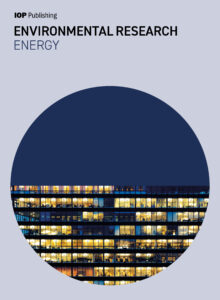EREN研究文章|促进接受加快依赖煤炭地区的可持续性转型

文章介绍
Cristian Pons-Seres de Brauwer and Paola Andrea Yanguas Parra
作者:
- Cristian Pons-Seres de Brauwer,瑞士圣加仑大学、瑞士苏黎世应用科技大学
- Paola Andrea Yanguas Parra,瑞士苏黎世应用科技大学、德国柏林工业大学
期刊介绍

Environmental Research: Energy
- Environmental Research: Energy是一本多学科、开放获取的期刊,致力于解决与能源相关的重要挑战,并在影响/未来风险、复原力、环境减缓、环境适应、环境安全和最广泛意义上的解决方案方面进行努力。
